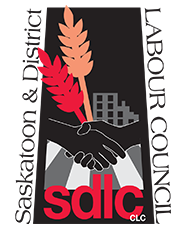Quiet changes to liquor privatization plan will hurt even more small towns
Government is making new, quiet changes to its plan to privatize public liquor stores that will hurt even more of Saskatchewan’s small towns, according to SGEU.
More towns now stand to lose a full-line liquor store in their communities. The privatization plan laid out by government in November 2015 indicated that only in communities with less than 2,000 people would a business be granted a licence to sell liquor as part of an existing retail business. Now, according to Request for Proposal (RFP) documents recently released, that population threshold has been raised, meaning that towns of 5,000 or less may see their full-line public liquor stores replaced by a liquor section tucked into a grocery store or pharmacy.
“This backdoor change means even more small towns will suffer a net loss of jobs. The jobs of public liquor store staff will be gone, and without a new, stand-alone store to employ workers, the community will lose valuable employment opportunities,” points out Donna Christianson, chair of SGEU’s Saskatchewan Liquor and Gaming Authority (SLGA) bargaining unit.
“If licenses to sell liquor are simply handed to existing stores, no new staff positons will be created,” says Christianson. “This clearly shows that liquor privatization will mean the loss of good, family-supporting jobs in small towns, which hurts other local businesses where those workers spend their wages.”
A recent study, A Sober Reminder: Economic Impacts of Liquor Store Privatization in Small Town Saskatchewan, found that privatizing rural liquor stores has a spin-off impact on jobs and local income that goes well beyond the employees directly affected. Focusing on the closure of four stores in Ituna, Ponteix, Langenburg and Kerrobert in 2014, the report shows that, on top of the $429,000 in labour income lost by store employees whose jobs were terminated, additional labour income of up to $435,000 was lost by other workers who supported the stores or relied on their employees’ spending.
As a result of the recent changes to the privatization plan, 14 more small towns will likely no longer have a full-line liquor store.
In addition, while more consumer choice and selection was touted by government as one of the benefits of privatization, local retailers who simply integrate liquor into their stores will be unlikely to carry the same range of products as the public liquor store, adds Christianson.
“This stealthy change to the government’s privatization plan means that even more small towns stand to lose good, local jobs, hurting families and communities. Government needs to step back and consider the long-term, real-life impact of this privatization plan. And it is questionable for it to be making backdoor changes to the plan that it laid out to Saskatchewan people before the election,” she adds.
- 30 -
For more information contact:
Donna Christianson at 306-527-4768
or Susan Dusel,
Communications Officer
306-775-7249 office
306-520-4930 cell





